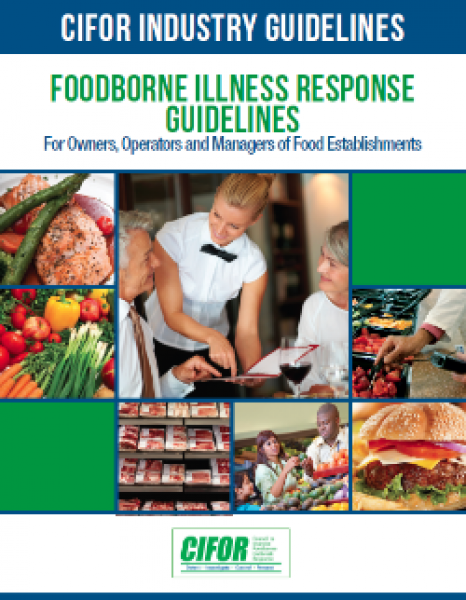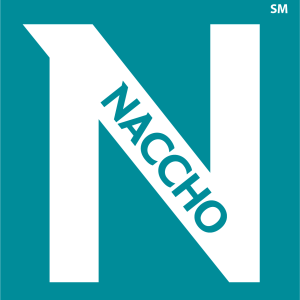The CIFOR Industry Guidelines were developed as voluntary guidance for owners, operators, and managers of retail food establishments (“Industry”) to help outline, clarify, and explain Industry’s recommended role in a foodborne illness outbreak investigation. The CIFOR Industry Guidelines are not intended to replace pre-existing company guidelines or local, state, or federal regulations or procedures. Instead, the CIFOR Industry Guidelines are to be used as a reference document to create Industry procedures where none may exist, complement existing procedures to fill gaps and update establishment-specific procedures, and to develop specific training content for staff.
The CIFOR Industry Guidelines provide: (1) step-by-step approaches to important aspects of outbreak response such as preparation, detection, investigation, control, and follow-up; (2) describe key information to assist Industry in understanding what to expect when first notified of potential illnesses; (3) provides tools to help guide Industry through the process; and (4) serve to provide Industry with a better understanding of how efforts to implement recommended and/or required safe food practices on a day-to-day basis can inform and support a foodborne outbreak investigation. By using the Guidelines and its tools, Industry can take an active and educated role in outbreak response and investigation thereby reducing negative health impact to the public and negative economic impact to their businesses.
Contents in the CIFOR Industry Guidelines include both information and tools centered on the following topics:
- Outbreak Investigation Prep —Recommendations
- Food Establishment Self-Assessment
- Media
- Store Closure and Reopening
- Control measures
- Flow Diagram: Guidelines and Tools
- Terms and Definitions
- Tools
These guidelines were developed by a workgroup composed of a broad range of experts from food industry and local, state, and federal regulatory and non-regulatory public health agencies with expertise in epidemiology, environmental health, laboratory science, communications, and food industry operations.
About CIFOR
The Council to Improve Foodborne Outbreak Response (CIFOR) is a multidisciplinary collaboration of national associations and federal public health agencies whose goal is to improve methods at the local, state, and federal levels to detect, investigate, control, and prevent foodborne disease outbreaks. CIFOR identifies barriers to rapid detection and response to foodborne disease outbreaks and develops projects that address these barriers. CIFOR member organizations represent epidemiology, environmental health, public health laboratories, and regulatory agencies involved in foodborne disease surveillance and outbreak response. The food industry is represented on the CIFOR Industry Workgroup. More information about CIFOR can be found at www.cifor.us.







